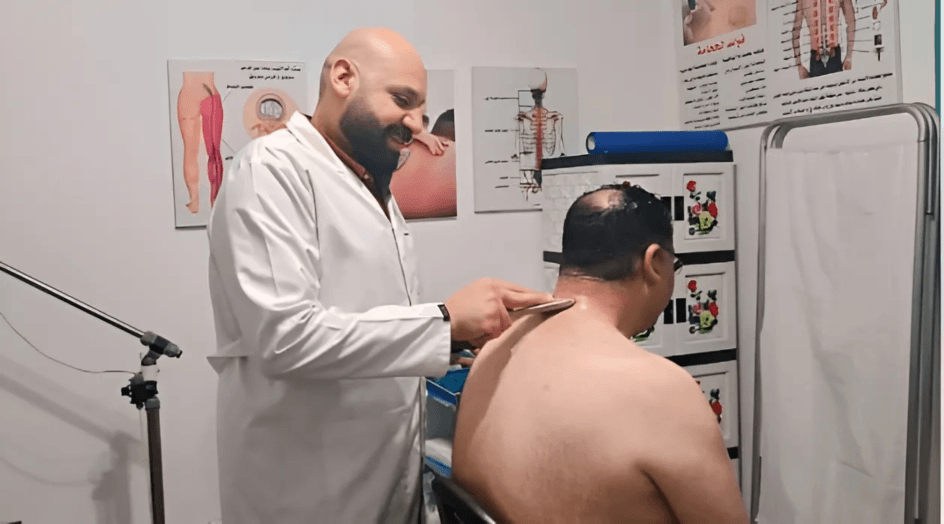
Do you have chronic back or chest pain? Do you experience stiffness and rigidity in your body movements? A herniated thoracic disc may be the cause. In this comprehensive article, we will discuss in detail what a herniated thoracic disc is, its causes, symptoms, and risk factors. We will also discuss available prevention and treatment methods.
For reservations and communication
What is a thoracic disc herniation?
A thoracic disc herniation is a medical condition that occurs when part of the cartilage that separates the vertebrae of the thoracic spine slips out of place, putting pressure on surrounding nerves. This condition causes severe pain and can affect movement and daily functions.
Causes of thoracic disc herniation
- Aging: As we age, discs lose their flexibility and strength, making them more susceptible to rupture and slippage.
- Injuries: Accidents and violent collisions, especially in the back and chest area, can damage discs.
- Incorrect heavy lifting: Lifting weights incorrectly puts a lot of pressure on the spine.
- Obesity: Excess weight increases pressure on the spine and discs due to increased fat and weak muscles.
- Lack of movement and prolonged sitting: Not exercising and spending long periods sitting in incorrect positions weakens the back muscles and leads to stiffness of the vertebrae.
- Incorrect positions while sleeping and working: Sleeping on an unsuitable mattress or sitting in a bent position for long periods can increase pressure on the spine.

Risk factors for thoracic disc herniation
- Age: The risk of developing a herniated disc increases with age.
- Occupations that require heavy lifting or constant bending: such as construction and carpentry.
- Smoking: Smoking reduces blood flow to the discs and delays the healing process.
- Genetics: There are some genetic factors that may increase the risk of developing the disease.
Symptoms of thoracic disc herniation
- Severe back or chest pain: The pain may radiate to the arms or legs.
- Muscle stiffness and rigidity: Especially in the back and neck.
- Difficulty moving: The affected person may have difficulty bending or turning.
- Numbness and tingling: In some cases, the affected person may feel numbness or tingling in the extremities.
- Muscle weakness: The affected person may notice weakness in the muscles of the arms or legs.
Note: These symptoms may vary from person to person and may not all appear in all affected people.

Suggested Keywords
- Thoracic disc herniation
- Causes of thoracic disc herniation
- Symptoms of thoracic disc herniation
- Risk factors of thoracic disc herniation
- Treatment of thoracic disc herniation
- Prevention of thoracic disc herniation
- Back pain
- Chest pain
- Spine
- Cartilage
Share this article
Suggested topics
Copyright © 2024 Egypt Chiropractic Center | All Rights Reserved & Powered by Infinity Creative














